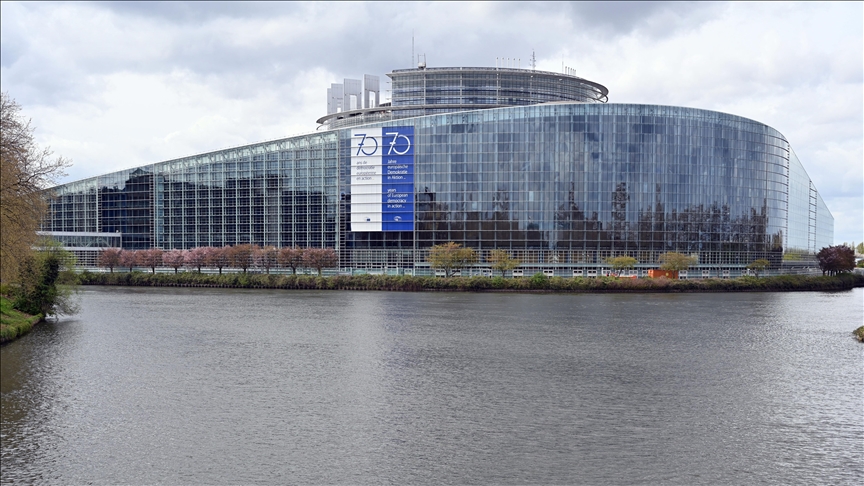

By Anadolu Agency
– Germany’s pro-Israel stance has tarnished its image in Muslim and Global South nations, and also harms its own economic interests, says Johannes Fehr, another MeRA25 candidate
ATHENS
The European Parliament (EP) elections next week will prove decisive in shaping the future of Germany and the EU, according to two candidates of the left-wing MeRA25 party.
In an interview with Anadolu, Karin De Rigo, a leading candidate for the German party, warned that the climate crisis, diminishing social and economic rights, and declining democracy and consolidation of authoritarian tendencies all threaten the very future of the EU.
“As these problems were not addressed by the establishment parties, including the Green Party of Germany, which transformed itself from a left-wing to a social democratic party, we have witnessed the emergence of right-wing, populist parties that pose a serious threat to Europe’s future,” De Rigo said.


Photo: Karin de Rigo, credit: diem25.org
Germany, which will send 92 lawmakers to the EP, is of particular importance, she stressed.
Building on her point, De Rigo’s fellow candidate Johannes Fehr said the June 6-9 elections are even more significant in the context of Israel’s “genocide” against Palestinians in Gaza and the evident complicity of European nations, including Germany.
Berlin remains one of Israel’s staunchest supporters and its government has been particularly aggressive in clamping down on any expressions of pro-Palestine sentiment in the country.
“Our democracy is in danger because when our views are so biased, it can only go toward a dictatorship in the end,” said De Rigo, adding that the German media is particularly culpable in creating this atmosphere.
Fehr pointed out that “Palestinians are just absent” in German mainstream media coverage.
Photo: Johannes Fehr, credit: diem25.org
“If there’s one (news) about Palestine, it’s often about Hamas, but not about the Palestinian people. and that’s something we are fighting to change,” he said.
“I think we, Germany and Germans, are being tested at the moment about whether we actually learned the right lessons from the horrific time when the Holocaust was perpetrated.
“Have we learned directly that all people are equal, and it should be ‘never again’ for everyone? We have to fight for the right answer to this and the answer should be ‘never again’ for anyone.”
Fehr underlined that Germany’s pro-Israel policies have not only tarnished its image among Muslim nations and the Global South, but will also harm its own economic interests.
“It might be a global turning point when people look back in 100 years,” he said.
De Rigo emphasized that peace and prosperity in Europe should not and cannot come at the cost of exploitation and colonization of non-Western nations.
“Do we want to maintain our wealth while other people are dying or other people are being exploited?” she said.
Discontent in Germany
One of the core reasons for Germans’ growing frustration with the governing coalition, which includes the left-wing Greens and Social Democratic Party, is the continuation of the austerity policies of previous governments, according to De Rigo.
That has led to diminished purchasing power for citizens and alarming underinvestment in infrastructure, she said.
Instead of trying to find quick fixes, she said left-wing parties should push for more holistic measures such as higher taxes for big corporations, four-day work weeks and universal income for financial stability.
“We think that, for the same reason, we cannot solve the situation only in one country. It has to be addressed on a European level and hopefully also at a worldwide level,” said De Rigo.
Fehr stressed the need for Germany to invest more on transitioning to a green economy if it wants to salvage whatever it has left from its manufacturing capacity, which has taken a hit from the spike in energy prices caused by the war in Ukraine.
Another key step, he added, is to find solutions to the housing crisis caused by the increasing dominance of a handful of private housing companies.
Both Rigo and Fehr warned that in Germany’s current model big corporations will keep expanding their economic power and influence on the government and media, giving them free reign to undermine both the country’s economic interests and people’s democratic rights.
We use cookies on our website to give you a better experience, improve performance, and for analytics. For more information, please see our Cookie Policy By clicking “Accept” you agree to our use of cookies.
Read More